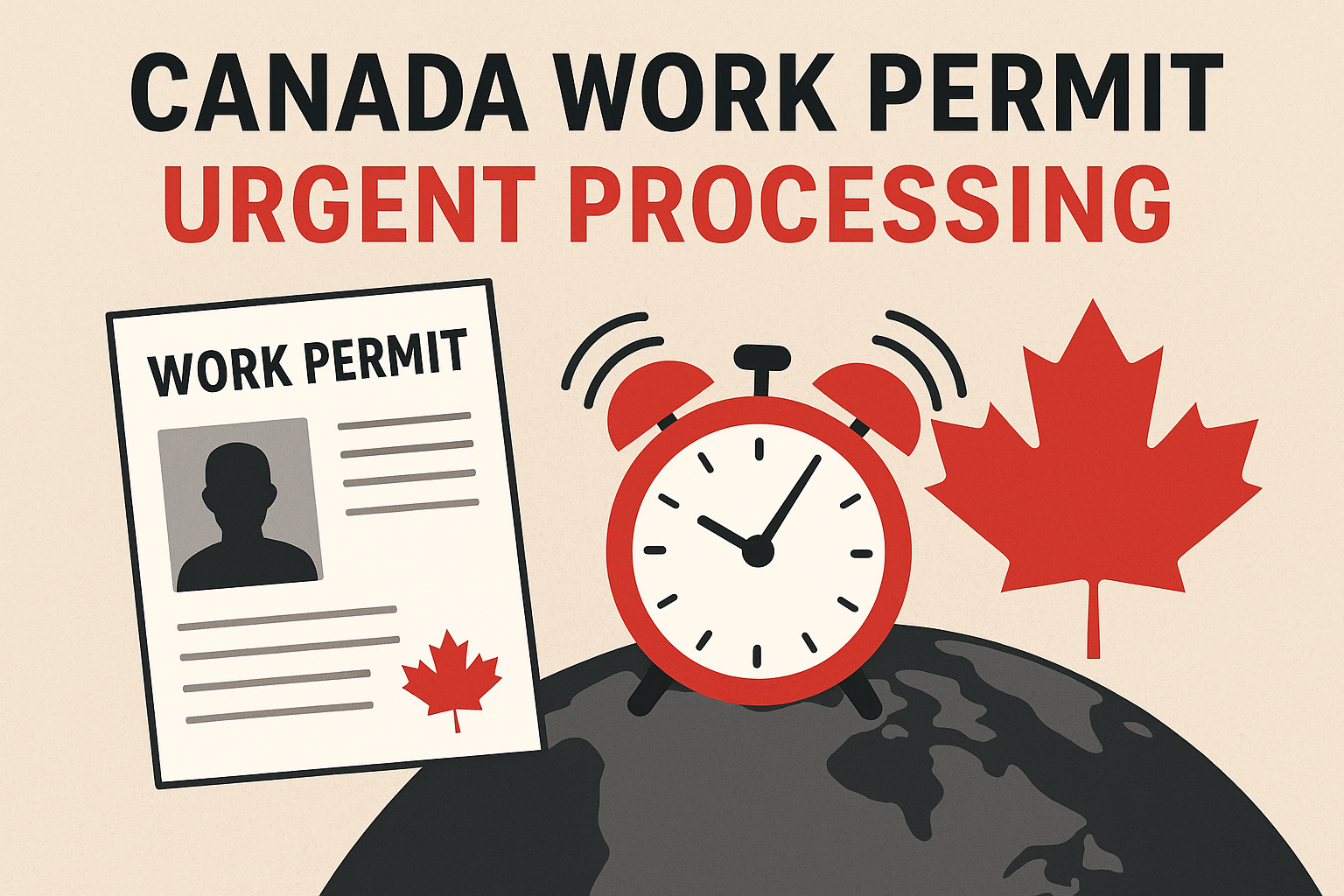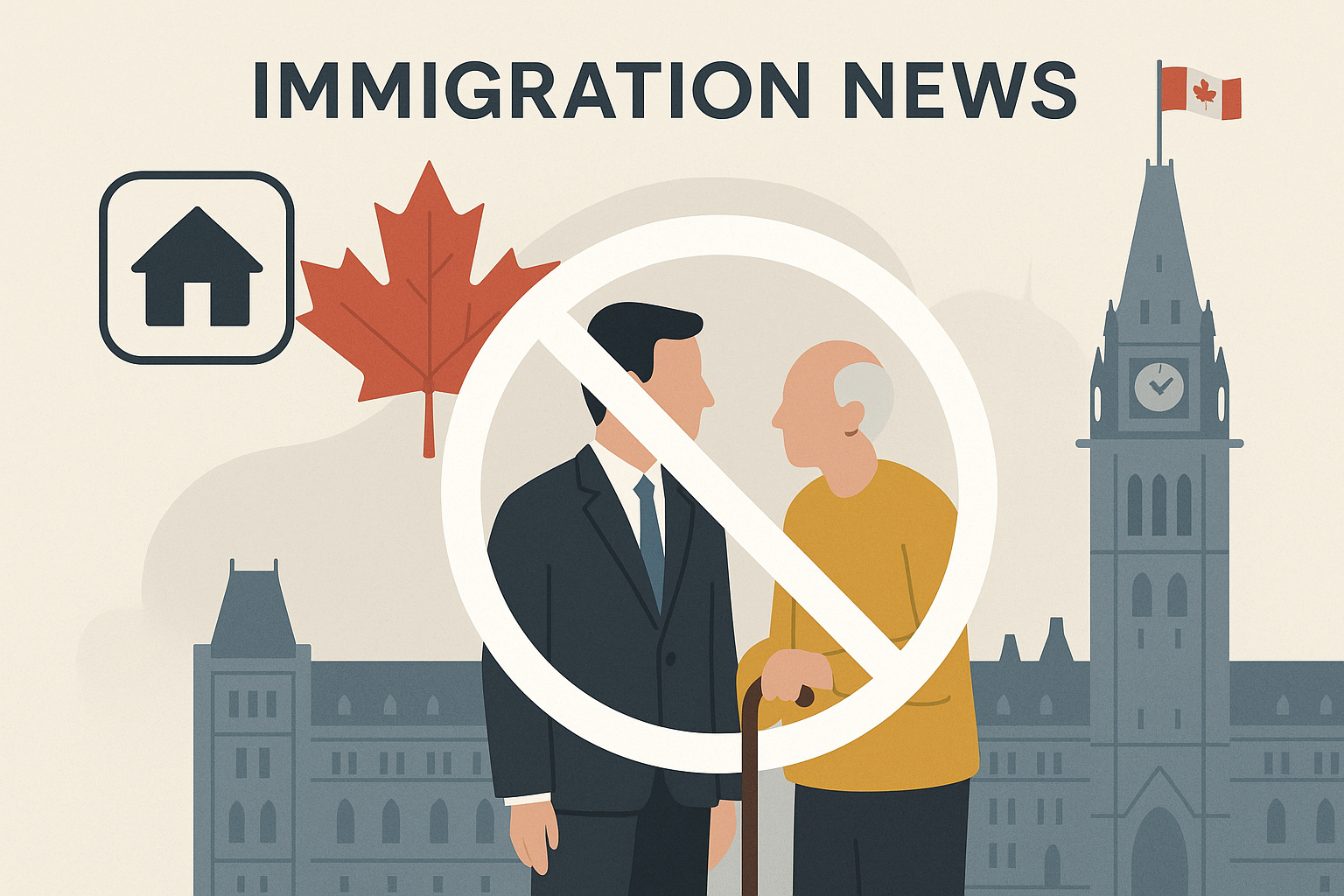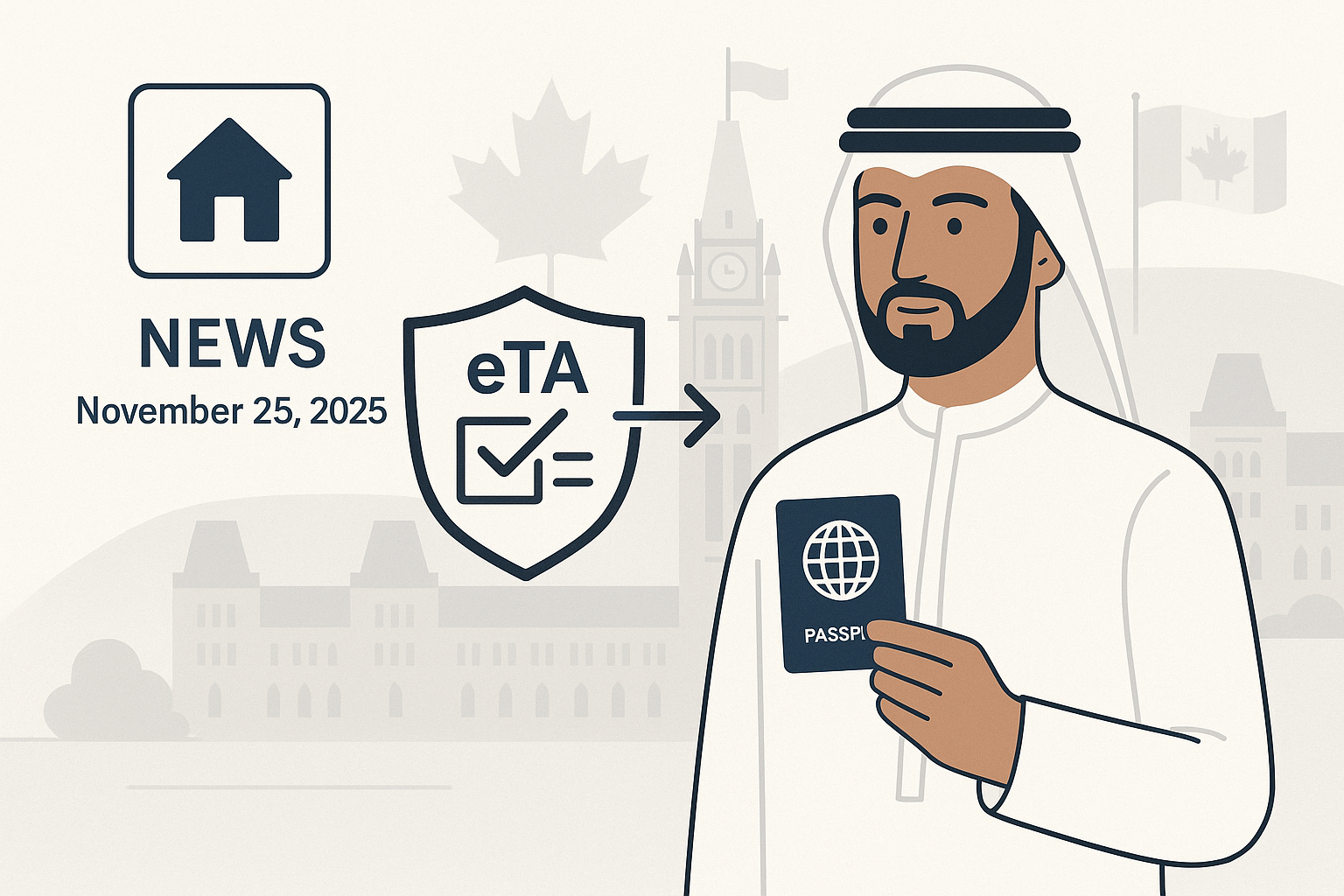
Work permit processing in Canada can take months, but priority processing is available for applicants in essential services like healthcare, agriculture, and agri-food. By correctly identifying and entering your NOC code, you may qualify for urgent processing and significantly reduce wait times. This guide explains eligible occupations, key steps for priority consideration, and highlights other fast-track options like the Global Skills Strategy (GSS).
Soheil Hosseini
December 28, 2024
Jurisdiction
federal
Week
Week 51
Impact
high
Programs Affected
Introduction
Applying for a work permit, whether for the first time or an extension, can be a lengthy process. For applicants inside Canada, it typically takes 5-6 months, while for those outside Canada, work permit processing times can range from as little as 2 months to over a year, depending on the country.
If you’re in an essential service role, you may be eligible for priority processing, which allows your application to be fast-tracked. This guide will explain how to check if you qualify and what steps to follow.
What is Priority Processing for Work Permits?
Priority processing is available for work permit applicants who perform or support essential services. The goal is to ensure critical sectors, such as healthcare and agriculture, remain operational by speeding up applications for qualifying workers.
Additionally, Canada offers a separate program called the Global Skills Strategy (GSS), which provides 2-week processing for certain high-skilled jobs under TEER categories 0 or 1 in the NOC system. This applies to roles with a Labour Market Impact Assessment (LMIA) under the Global Talent Stream, or LMIA-exempt jobs. Spouses and dependents applying at the same time may also qualify.
While GSS is worth exploring if you meet the criteria, this guide focuses specifically on priority processing for essential services.
Steps to Get Priority Processing for Your Work Permit
Here’s a simpler guide to speed up your work permit application:
1. Identify Your NOC Code
Start by finding your National Occupational Classification (NOC) code, which is crucial for speeding up the process. You can find your NOC code in:
Your job offer letter, or
Your Labour Market Impact Assessment (LMIA).
If you’re not sure of your NOC, use the NOC Navigator tool. This tool helps you explore about 516 NOCs and 33,000 job titles, showing which ones are eligible for Canadian permanent residency programs. You can even filter to see which NOCs qualify for priority processing.
2. Correctly Enter the NOC Code
When you fill out your work permit application forms, like IMM1295 or IMM5710:
Go to the section labeled “Details of intended work in Canada.”
In the Job title box (Box 4), enter your NOC code.
Remember: Only include the NOC number, leave out the job title or any additional text.
By accurately entering your NOC code, you inform Immigration, Refugees, and Citizenship Canada (IRCC) that your application should be considered for priority processing. Following these steps can significantly expedite your work permit application if you qualify.
Which Occupations Are Eligible for Priority Processing?
Canada prioritizes work permit applications for certain essential service roles in agriculture, agri-food, and healthcare. This covers 29 occupation codes and over 1,600 job titles. Let’s break it down:
1. Agriculture and Agri-Food Occupations
If you work in agriculture or food-related industries, you could qualify for urgent processing. Here are some eligible roles:
Butchers – retail and wholesale (NOC 63201): Includes job titles like retail butcher, butcher assistant, and apprentice butcher.
Meat cutters and fishmongers (NOC 65202): Titles include meat cutter, fish cutter, and fishmonger.
Farm supervisors (NOC 82030): Includes livestock foreman, vegetable farm supervisor, and poultry farm foreman.
Livestock laborers (NOC 85100): Includes poultry farm workers, egg collectors, and animal farming.
Farm machinery operators (NOC 84120): Titles like combine operator, sheep handler, and tractor operator.
Harvesting laborers (NOC 85101): Includes fruit picker, harvest worker, and market garden worker.
Greenhouse laborers (NOC 85103): Includes cannabis grower, greenhouse laborer, and Christmas tree trimmer.
Fish and seafood plant workers (NOC 94142): Titles include oyster shucker, fish cook, and crab butcher.
Food and beverage laborers (NOC 95106): Includes roles like chocolate packer, brewery laborer, and cigar wrapper.
Fish and seafood processors (NOC 95107): Includes fish sorter, shellfish laborer, and cannery worker.
Industrial butchers (NOC 94141): Includes meat trimmer, slaughterer, and beef boner.
2. Healthcare Occupations
Healthcare professionals are also eligible due to the high demand for medical services.
Eligible roles include:
Nursing coordinators (NOC 31300): These are roles like head nurse, patient care coordinator, and nursing supervisor.
Registered nurses (NOC 31301): Titles include hospital nurses, psychiatric nurses, and school health nurses.
Clinical specialists (NOC 31100): Includes hematologists, internists, and nuclear physicians.
Surgeons (NOC 31101): Roles like neurosurgeon, plastic surgeon, and otologist.
General practitioners (NOC 31102): Includes family doctors, interns, and resident physicians.
Nurse practitioners (NOC 31302): Includes advanced practice nurses and primary care nurse practitioners.
Medical lab technologists (NOC 32120): Includes blood bank technologist and lab supervisor.
Licensed Practical Nurses (NOC 32101): Titles like operating room technician and graduate nursing assistant.
Nurse aides (NOC 33102): Includes roles like long-term care aide, nursing home attendant, and hospital aide.
Home support workers (NOC 44101): Includes caregivers and home support staff for LMIA-required, in-Canada applicants.
3. Other Essential Services
Roles like police investigators, paramedics, and pharmacists are also eligible for priority processing, as they play a key role in supporting Canada’s safety and health.
Final Thoughts
If you’re in an essential service role, priority processing can help reduce the stress of long wait times, letting you start your work in Canada sooner. Take the time to identify your NOC code, fill out your application accurately, and ensure you meet all eligibility criteria.
Remember, while this guide focuses on essential services, programs like the Global Skills Strategy (GSS) offer other pathways for faster processing of high-skilled work permits. If you’re eligible, explore your options to make the most of Canada’s immigration programs.
If you’re not confident in navigating the application process on your own or want to ensure every detail is correct, consider consulting a Regulated Canadian Immigration Consultant (RCIC). Their expertise can help you avoid delays, address complex requirements, and give you peace of mind throughout the process.
Categories
Share This Post
Stay Updated with Immigration News
Get the latest updates on Express Entry draws, OINP invitations, policy changes, and more delivered to your inbox.
We respect your privacy. Unsubscribe at any time.
Related Articles

Parent and Grandparent Suspension
IRCC Ministerial Instructions effective Jan 1, 2026 suspend acceptance of new parent and grandparent PR and sponsorship applications until further notice. Up to 10,000 applications from the 2025 intake may be accepted into processing in 2026; details on the next intake will be announced later.

Study Permit: +90 Days
IRCC (Dec 22, 2025) now limits study permits for prerequisite programs to program length plus 90 days (down from program length plus one year), aligning with November 2024 regulatory changes. Students must plan transitions into main programs within 90 days or prepare for permit extensions; institutions may need to adjust admissions timing.

Foreign Workers Start Work
Canada’s temporary public policy (IRPA s.25.2), effective May 27, 2025, allows eligible temporary foreign workers in Canada to begin work for a new employer or occupation while a new TFWP or IMP work-permit application is pending. Workers must have valid temporary resident status, submit the work-permit application and an IRCC exemption request via the designated channel; approvals are discretionary and end when the application is decided or withdrawn.

Qatar Added to eTA
Canada has made Qatari nationals visa‑exempt and added Qatar to the eTA program; eligible travelers must obtain an eTA for air travel to Canada. This replaces the TRV for air arrivals and is intended to streamline short‑term travel and ties between the countries.